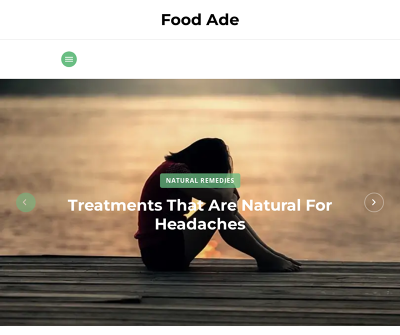The Holistic Practice of Naturopathy
To improve health and wellness, practitioners of naturopathy mostly rely on non-invasive, naturally occurring methods. Natural remedies are used because proponents of this approach believe they aid the body's innate healing abilities.
A naturopathic doctor (ND) is a medical professional who specializes in the use of natural treatments.
Medicinal plants
Homeopathy
Acupuncture
Therapeutic Touch
Nutritional guidance
Health and wellness guidance
Physical examinations, laboratory tests, and imaging investigations are only some of the diagnostic instruments used by NDs. However, they focus more on the patient's general health and happiness than on the manifestations of any particular illness.
Because of its holistic nature, naturopathy treats the whole individual, including their mental, emotional, and spiritual well-being. Naturopathic doctors (NDs) think these things all affect one another and, thus, one's health.
A wide range of medical issues can be effectively treated by naturopathic means. It's a smart strategy for maintaining your health and warding off disease.
Gains from Naturopathic Medicine
Among naturopathy's many advantages are:
Multiple medical issues can be treated without risk or side effects.
It's a soothing and all-encompassing method of healing.
In addition to warding off disease, it also boosts general health and well-being.
People who want a more holistic approach to health care will find this to be a viable alternative to conventional medicine.
Consequences of Natural Medicine
Consequences of naturopathy include, but are not limited to:
Some naturopathic treatments have only a smattering of research to back them up.
The cost of naturopathic treatment varies.
Finding a competent naturopathic medical practitioner may prove challenging.
A wide range of medical issues can be effectively treated by naturopathic means. It's a smart strategy for maintaining your health and warding off disease. Do your homework and consult with a trained naturopathic physician before making any decisions about naturopathy. They will be able to advise you on the best course of therapy for your unique ailment and help you decide if naturopathy is right for you.
Holistic Medicine Through Homeopathy
Samuel Hahnemann developed homeopathy as an alternative medical practice in the 18th century. Using the concept that "like cures like," in which a substance that produces a symptom in a healthy person may be used to treat that symptom in a sick person, homeopathy is founded on the assumption that the two states are chemically similar.
Homeopathic medicines are produced from organic materials like plants, minerals, and animal by-products. They are diluted with water or alcohol until there is hardly nothing of the original drug remaining, if any at all.
According to homeopaths, a weaker medicine is better. They reason that the therapeutic properties of the original material are transferred to the molecules of the water or alcohol.
Pills, powders, and drops are the most common forms of oral administration for homeopathic treatments. They can also be used topically, such as in creams or gels, for external application.
Conditions as diverse as allergies, anxiety, arthritis, depression, headaches, and sleeplessness are all amenable to homeopathic treatment. It's also utilized for disease prevention and general wellness enhancement.
Homeopathy may be useful in treating several illnesses, according to the available evidence. However, most homeopathic investigations have proven inadequate in scope and methodology. More studies are required to determine homeopathy's efficacy for specific illnesses.
Homeopathy has a solid reputation for being risk-free. Some people, however, have had negative symptoms, such as sickness and lightheadedness. If you are pregnant, breastfeeding, or currently taking any other medications, it is very vital to consult your doctor before using any homeopathic cure.
Homeopathy is a form of alternative medicine that treats the whole person by considering their psychological and physiological makeup. It has the potential to be a risk-free and highly efficient treatment for a wide range of medical issues. However, more studies are required to determine homeopathy's efficacy for specific illnesses.
Homeopathic Treatments: What You Can Expect
The following are some of the many advantages of homeopathic treatments:
There aren't many risks associated with them.
They are safe for use by people of all ages, including children and pregnant women, due to their mild nature.
They have a wide range of medical applications.
They are frequently used in addition to standard medical care.
Consequences of Using Homeopathic Treatments
Homeopathic remedies have a number of potential downsides, such as:
There is scant empirical evidence demonstrating their usefulness.
They may be pricey.
They might not be readily available in all regions.
It may be challenging to locate a competent homeopath.
Homeopathic treatments have been around for millennia and are considered a type of alternative medicine. They operate on the premise that a drug that produces a given symptom in a healthy person may be used to treat that symptom in a sick person, a concept known as "like cures like."
Homeopathy may be useful in treating several illnesses, according to the available evidence. However, more studies are required to determine homeopathy's efficacy for specific illnesses.
Homeopathy has a solid reputation for being risk-free. Some people, however, have had negative symptoms, such as sickness and lightheadedness. If you are pregnant, breastfeeding, or currently taking any other medications, it is very vital to consult your doctor before using any homeopathic cure.
You should consult a professional homeopath and read up on homeopathic treatments before trying them. You can get advice on whether homeopathy will work for you and how much to take from them.

Addess:
137 E Elliot Rd
Gilbert, Arizona 85234
US
About Us
Foodade provides information about a variety of homeopathic therapies, natural cures, and natural remedies that can be found in the house. The practice of naturopathy is a form of alternative medicine that places an emphasis on the utilization of various natural treatments to improve ones health and overall quality of life. It is predicated on the idea that the human body possesses the capacity to heal itself and that natural therapies have the potential to assist in facilitating this process. Natural cures are defined as substances or therapies that are derived from nature and are utilized for the purpose of treating or preventing diseases. They may be administered on their own or in conjunction with more traditional forms of medical care.
Key Services in 2025
https://www.foodade.com
- Home cures for the common cold
-
Anxiety treatment homeopathy
-
Natural treatments for anxiety and sadness
-
Weight-loss dietary supplements
-
Sleep aids that don't use caffeine
-
Treating a headache at home
-
Arthritis treatment using Ayurvedic medicine


